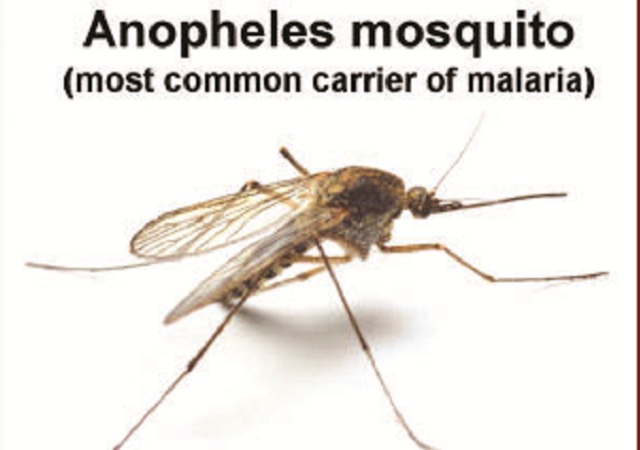
The Sunday News

Lee-Ann Hall
IT goes without mentioning that malaria cases and deaths are mainly concentrated in Africa.
A child dies every minute from malaria in Africa where it is estimated that nine out of 10 deaths occur.
Malaria continues to have a severe socio-economic impact on our populations.
It is reported to be one of the causes of household poverty due to absenteeism from work as well as many children not attending school, all due to illness.
People who have lived all their life in a country with a high rate of malaria have typically been exposed to malaria parasites many times. After the first exposure, the immune system begins to protect you, so re-infection may cause few or no symptoms.
The immune system does not remain active against malaria for more than a few years if you are not exposed again.
In regions where there is a high rate of malaria infection, malaria can spread in other ways than through a mosquito bite, such as through contaminated blood transfusions and shared drug needles.
Aetiology
Malaria is a potentially life-threatening disease caused by infection with Plasmodium Protozoa transmitted by an infective female Anopheles mosquito.
Again, there is Plasmodium falciparum infection which carries a poor prognosis with a high mortality if untreated.
Plasmodium parasites spend several parts of their life cycle inside mosquitos. During the human part of their life cycle, Plasmodium parasites infect and multiply inside liver cells and red blood cells.
Usually symptoms appear within the first several weeks after the infected mosquito bites you.
Signs of Malaria as well as diagnosis
The sooner one identifies the signs of malaria the sooner they seek medical attention in order to avoid further complications.
The most common symptoms are fatigue, headache, cough, malaise, shaking chills, nausea and vomiting. The less common symptoms are weight loss, diarrhoea and jaundice.
Once one seeks medical attention the following are diagnostic measures that health professionals;
(1) They take a patient’s history which involves recent or remote travel to malaria prone areas, immune status, age, pregnancy status, allergies or any other medical conditions as well as medication currently being taken.
(2) Next — medical tests are done eg a blood test which is done to determine whether the malaria has infected your levels of red blood cells and platelets, the ability of your blood clot as well as liver and kidney function.
Again, when the doctor suspects malaria he can find an enlarged spleen because the spleen commonly grows bigger during a malaria infection.
Prevention and Awareness
It is important to promote community awareness on preventative methods of how to avoid mosquito bites such as;
(1) stay indoors in well-screened areas, especially at night.
(2) use mosquito nets and bed nets. It’s also best to treat the nets with mosquito repellent.
(3) wear clothing that covers most of your body.
(4) use an insect repellent that contains DEET or picaridin.
When you travel to a region that has malaria it is vital to take medication prior to travelling.
Keep in mind that most of these medications can prevent malaria infections but travellers occasionally get malaria even on medication.
Treatment
Malaria is an entirely preventable and treatable disease.
When approaching the treatment plan the primary objective is to ensure a rapid and complete elimination of the Plasmodium parasite from with patient’s blood I order to prevent progression of uncomplicated malaria to severe disease or death.
From a public health perspective, treatment is meant to reduce transmission of the infection to others.
Once one is diagnosed with malaria they go on a anti-malarial drugs course as well as other measures to control symptoms, including medications to control fever, fluids and electrolytes.
People with Falciparum malaria have the most severe symptoms. They may need to be monitored in ICU during the first days of treatment because the disease can cause breathing failure, coma and kidney failure.
‘‘Take care of your busy body, you owe that to your family’’.
For more information about malaria please email me on [email protected] or follow my blog www.healthpromotionbyleeanne.wordpress.com.
Lee-Anne Hall, BSc Physiotherapy



